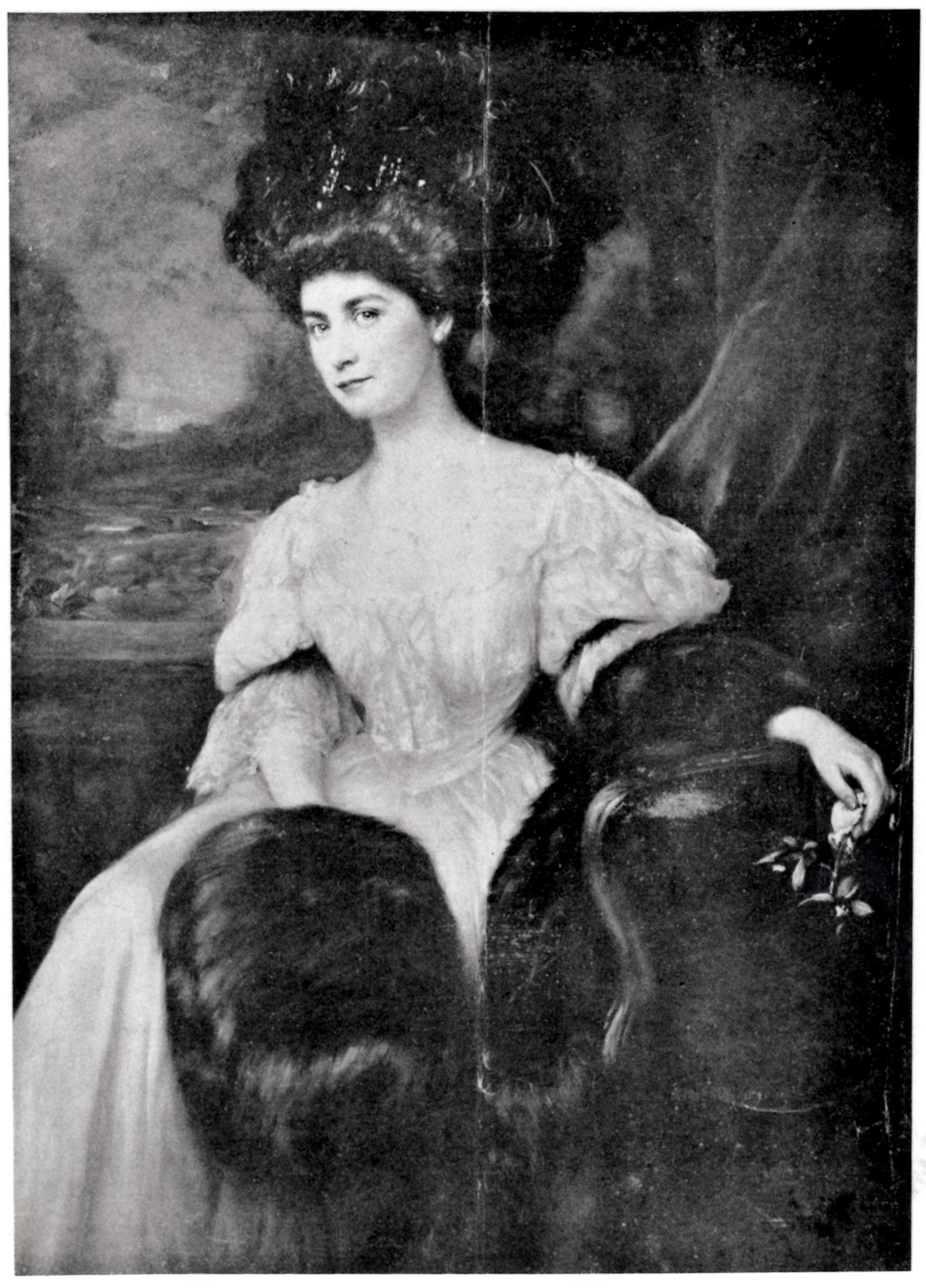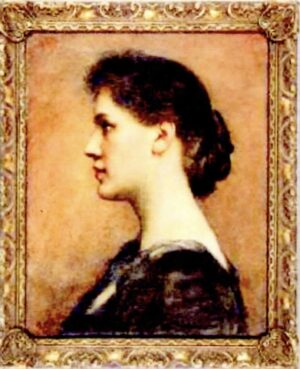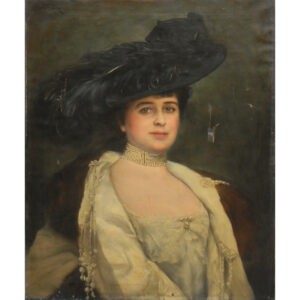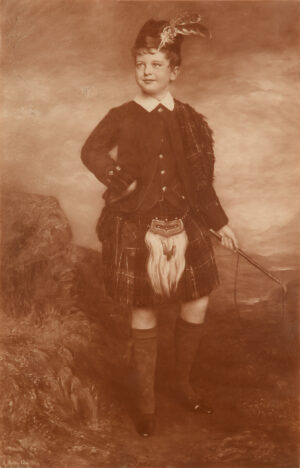PRATT, Constance (Later Mrs Walter Negley Stillman) (1904 – 2nd Version)
Description:
Three-quarter length, seated in a landscape dressed in white in a large black hat, holding a muff, her head slightly to the left. Presumably the same size as the prime version.
Location:
Present Whereabouts Unknown.
Bibliography:
Town & Country, New York, (Vol. 62, No. 39), Saturday, December 14, 1907
The sitter was the second daughter of Dallas Bache Pratt (1848-1929) and Mary Gordon Pratt (born 1857) whom he married in 1881, and the sister of Katharine Pratt (Mrs Lycurgus Winchester). Her father was a partner in the firm of Maitland, Coppell & Company and was one of the foremost bankers in New York and rear-commodore of the New York Yacht Club.
Muller-Ury pressed Dallas Bache Pratt for a commission to paint Constance Pratt soon after painting the portrait of her older sister Katharine. In the artist’s papers is the following letter dated January 15, 1903 from his wife who had been to see the artist’s exhibition at the NOE ART GALLERIES, Fifth Avenue, New York:
‘Dear Mr. Muller-Ury,
I have been to see your portraits and think they are fine. Miss Pfizer is awfully good I think and beautifully painted. It has been a great disappointment to me that we have not thought best to have Constance painted and I have been more than sorry that I have had to disappoint you too. Such is life! Some day we hope to have you paint this portrait and I have no doubt it is best, as she has been so rushed with gaiety, that in the day time she has had little strength and looked too pale for a painting.
Wishing you always great success in your fascinating work I am
Yours sincerely, Mary Gordon Pratt.’
Eventually, Dallas Bache Pratt gave in and Muller-Ury received a commission in about mid-1904, for by December the large canvas was completed.
On December 15, 1904, the artist was sent the following letter (artist’s papers):
‘Dear Mr, Muller-Ury,
I enclose cheque for the charming picture you have made of Constance with very many thanks from Mr. Pratt and myself.
I am sure everyone will like it but your greatest satisfaction must be that Mr. Pratt and I are satisfied & pleased. Hoping to see you soon & that some night you will come & dine with us quietly – I am
Yours sincerely, Mary Gordon Pratt
afterthought
We hope to have the portrait very soon so as our friends can see it.’
The New York Herald, in an undated cutting in the artist’s papers, described the picture as ‘…a three-quarter length seated one of Miss Pratt, sweet in expression…’
—
The artist appears to have painted quite a few pictures of Constance, who remained the artist’s friend all her life. Her son, P. Gordon Stillman, told the editor that he remembered Muller-Ury’s old fashioned manners and chivalric behaviour towards his mother when he met him as a boy.
Walter Negley Stillman was a business executive for Stillman Maynards & Co. of 61, Broadway, New York (died on January 6, 1956) married Constance on 2 November 1910 at Grace Church. They lived at 640, Park Avenue, New York.
Muller-Ury gave Constance a still life in the 1930s, but this was sold after 1957 by her son George Stillman to French & Co. Another Muller-Ury picture the Stillman family possessed was called “The Girl with Red Hair” was damaged in a robbery from a storage room later, but was restored in 1992.
According to Caroline Seebohm, The Man who was Vogue: The Life and Times of Conde Nast, London, 1982, p.165, ‘In the spring of 1914, at a charity Easter fete at the Waldorf Astoria, society posed a series of tableaux vivants inspired by Vogue covers (Miss Beatrice Pratt and Mrs Walter Stillman, for instance, mimed two Helen Dryden creations…)’
—
Two versions of this picture are reproduced in the cuttings. This version was illustrated in Town & Country, New York, (Vol. 62, No. 39), Saturday, December 14, 1907; but the prime version was illustrated in an unnamed cutting in the artist’s papers – possibly New York Times, 1908 – (artist’s papers) which shows the head facing forwards, and it is this prime version of the portrait that was destroyed in the storage fire. It is possible that Muller-Ury kept the variant illustrated in Town & Country in his studio for exhibitions or that he repainted the head of the sitter after it had been first photographed.





